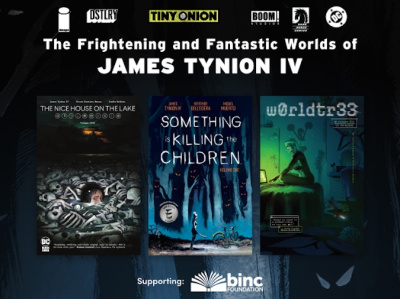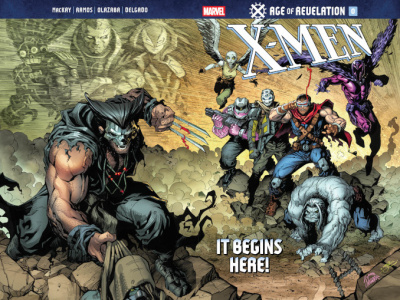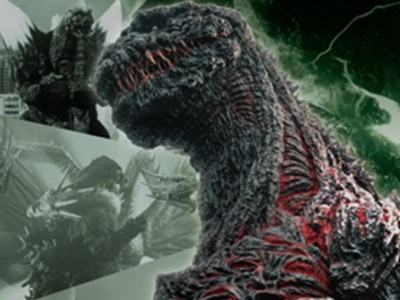We talked to IDW Media Holdings CEO Ted Adams at San Diego Comic-Con recently to get his view of the market and talk about IDW’s latest initiatives and plans. In Part 1 of our two-part interview, we talk about comics, including the Direct Market, variants, the book channel, mass, and digital. In Part 2, we talked about games, the entertainment division, running a holding company, and upcoming releases.
Let’s start out by talking about the state of the comics market, still your biggest business even though you’re also becoming a player in the games space. What’s your read on the status of the Direct Market right now?
I think the first half of the year was a little weak for everybody, but now that DC’s got their relaunch going and Marvel’s doing what they’re doing, it seems, anecdotally anyway, that stores are seeing more customers come in. June was a very good month for us. As always, it’s a combination of customers and store and good product mix, which I think we had in June.
Our expectation is that Fall is going to be really big for us. We’re doing our first big, multi-property crossover with Hasbro, called Revolution (see "IDW Fomenting 'Revolution'"). We’re putting a lot of marketing muscle behind that so our expectation is that September, October, November, that particular quarter, will potentially be our best ever.
The first part of the year the Big Two, collectively, were weak. Is that just bringing fewer people into the stores?
And frankly, we didn’t have a great product mix ourselves in the first half of the year. Our sales were down, no question, in the first half of this year in the Direct Market. I think it’s a combination of that, not enough customers in stores, and our own product mix not being as good as it has been historically.
A significant percentage of the dollars, probably a double digit percentage, in the Direct Market these days is from variants. Do you think that’s a dangerous situation or about where it should be?
We’ve been doing variants for as long as we’ve been publishing. We’ve had great success doing regular covers and subscription covers, and we’ve been doing those for a long time. And we’ve seen that if we start doing a subscription cover on a series and then remove it, the sales just go away. They don’t get transitioned to the regular cover.
So that’s double-buying then?
It’s hard to say. I don’t know if it’s double-buying or some people who just want variant covers. I haven’t dug into it with enough accounts to be able to tell you for sure. The other thing that’s really picked up for us over the last couple of years are the retail-exclusive covers. We have a really steady base of stores that want retailer-exclusive covers. There’s a lot of conventions now that want exclusive covers, so that’s become a nice business for us as well.
So on a big #1, how many exclusive covers do you do?
A lot. We’re launching a new Turtles series called TMNT Universe. It was a big launch for us. I think we’re at 35,000-plus, a great number for launch, for pre-orders. I think probably 8,000-plus of those were variant covers, of one kind or another, whether they were sub covers or R.E. covers or con covers.
Do you think the number of consumers in the Direct Market is stable, increasing or decreasing?
I think it always comes down to what Marvel and DC are doing because they’re always the drivers for people walking in the door. I think the same number of people are interested in comics, but there’s got to be a reason for them to have that habitual buy. Otherwise instead of coming in every week, they might come in every month. It’s such a ‘what have you done for me lately?’ kind of business that you have to have something for people to come in every week.
What are you seeing in the book channel?
It’s no secret that Amazon continues to grow and be strong there. We’ve seen an increase in independent book stores, so that’s been a nice marketplace for us this year. Our expectation is that the second half of our year is stronger than the first half from the product mix standpoint. We have the third volume of Congressman John Lewis’ March that comes out, a new Bloom County collection from Berkeley Breathed, a new book from Joe Hill, and a book about Kurt Cobain, so we really feel our book channel business is going to be up pretty significantly in the calendar third and fourth quarters.
And the health of the book channel?
I feel like it’s about the same. I look at Publishers Weekly and it seems there’s a little bit of growth happening at physical retail. I think the new Harry Potter script book will bring a lot of returning people to book stores. It’ll be interesting to see how that plays out. I expect that to be the bestselling book of the year by far.
What’s going on in the mass market and with the mini-comic Fun Packs?
We have another big, exclusive buy for Skylanders for this year with either Target or Toys R Us (I forget which), which is great for us. We’re doing another My Little Pony Fun Pack coming out third quarter. We have a couple more in the works. It’s like it’s always been. We’re not going to doing that every month or every other month, it’s going to be a couple times of year. It’s very targeted (no pun intended). We’re really looking for a mass retailer that’s going to get behind that product in a big way. We have done two Star Wars Fun Packs (see "IDW Gets ‘Star Wars’") and those have done quite well for us in the Direct Market, so those have also crossed over into that channel.
Where did the content come for the Star Wars?
They’re the original movie adaptations. And we have one coming out later this year that will be character driven, more of the current content. There’ll be a Darth Vader pack and an Obi Wan pack, that sort of thing.
There can be considerable risk going into mass. What has been your experience with managing that risk?
When we’re doing exclusives, that’s typically sold on a one-way basis, so there’s no risk.
You don’t have to do markdown allowances?
We haven’t so far, which is not to say that we might not in the future. We had unbelievably strong sell-through with the Skylanders pack that we did last year. It was shocking, like 90+ percent sell-through. It was a one-way sale for us, so it wasn’t our risk anyway, but it sold really well for the chain.
We have learned that the girls products seem to do better on the pegs than the boys products, so we’ve had more success with Ponies than anything else when we’re talking about broad distribution of products. I think we’ve gotten pretty good at figuring out what works and what doesn’t work.
Over the last couple of years, there’s been quite a bit of change in the digital business. What are you seeing there?
For us, the Humble Bundles aren’t as big as they were a year or 18 months ago, so that revenue has decreased. We’re doing more Humble Bundles than we have before, so I think the total revenue might be up, but the individual bundles are not as big as they were.
Digital for us, and I think for the industry, has really followed Direct Market. So when things are working well in the Direct Market, things are working well in digital. When things aren’t working in Direct Market, they’re not working in digital.
As much as we hope it’s not necessarily the same customer, I think in a lot of cases it is. I expect that because of the success that Marvel and DC are having, I think digital will be up again.
You’ve been doing branded apps.
Yes, we did those and we’re on Apple TV, via Madefire. We have our My Little Pony, Transformers and Star Trek on Apple TV. We’re in Scribd, and are part of the comiXology subscription service. We continue to be technology and platform agnostic. We really just want to have the content available wherever people want to buy it.
How are digital sales doing, year over year?
I think it’s probably down about 10% on a year over year basis.
A few years ago we were talking about digital being a way to reach out to fans of the brand who aren’t necessarily fans of comics. It sounds like that’s not materializing the way you had hoped.
I think it’s still evolving and there’s a chance that it could. It just needs somebody to be able to get the word out to people who like those big brands. We really need the licensors to help us communicate that message. I think that where everybody struggles is how do we communicate that message to the non-fanatic consumer of something like Transformers or Star Trek or Ghostbusters? How do we get them to know that the comics exist? That’s something that we all struggle with.
The opportunity is still there. Everyone has a store in their pockets.
Yes, I think the glass is half full. We still have the chance to do that.
The storefront apps have really become the equivalent of the Direct Market. They’re noisy, they’re cluttered. If you’re a Transformers fan and you go into one of the general storefront apps, there’s just too much content that’s not of interest to you. That’s why we created our own Transformers app, and now we need to figure out how do we get the general consumer who’s interested in Transformers to know that there’s a Transformers app on their phone. And to be fair, we’ve done a promotion with Hasbro, they’ve been a good partner helping us get the word out on the packaging of the toys and various things that we’ve done over the years. It’s just, how do we get more and more people to know about that and continue to build upon it.
Click here for Part 2.

Direct Market, Variants, Book Channel, Mass, Digital
Posted by Milton Griepp on August 17, 2016 @ 3:23 am CT
MORE COMICS
From Tiny Onion, Dynamite, Image, IDW
July 18, 2025
There are four Humble Bundle deals running right now, from Tiny Onion, Dynamite, Image, and IDW.
From Marvel Comics
July 18, 2025
Age of Revelation, a new status quo taking place 10 years into the future and arising out of current developments in the X-Men titles, begins in October.
MORE NEWS
With 'Fanzone: Electronic Football Trivia Game'
July 18, 2025
Ultra PRO will release Fanzone: Electronic Football Trivia Game into retail.
Booster Set Adds King Ghidorah, Gigan, and Spacegodzilla
July 18, 2025
Bushiroad announced a second booster set for Godzilla Card Game.








